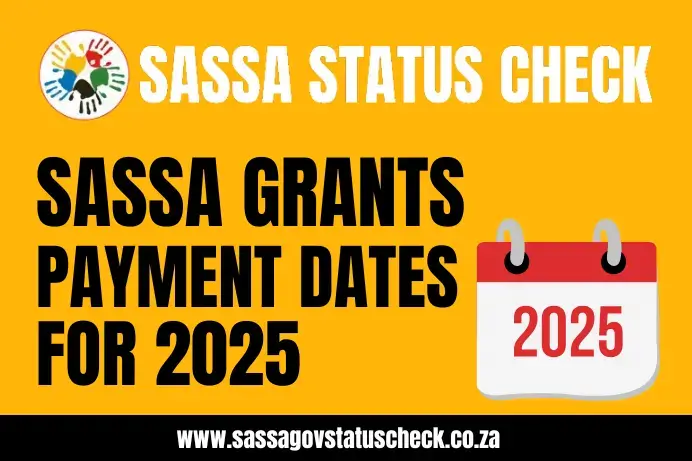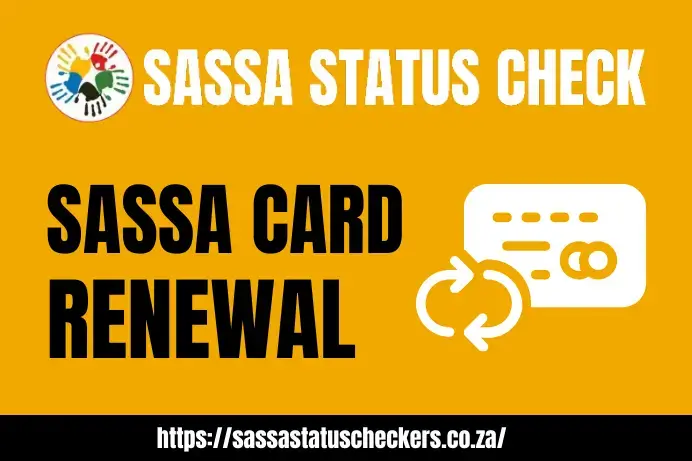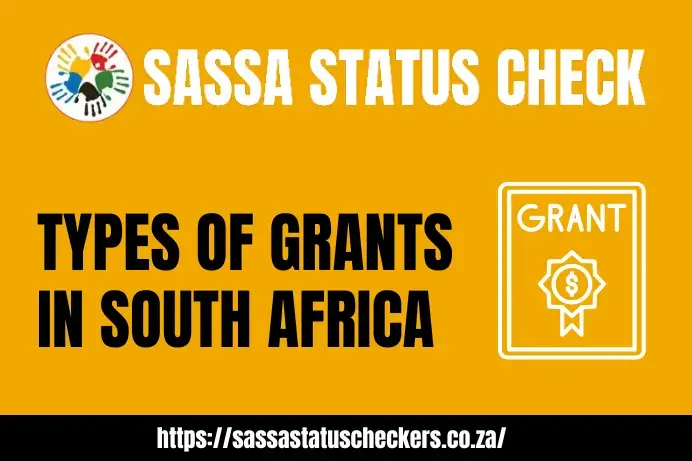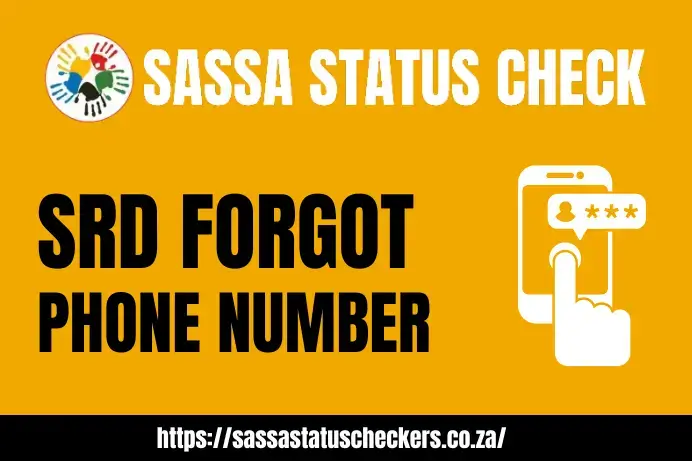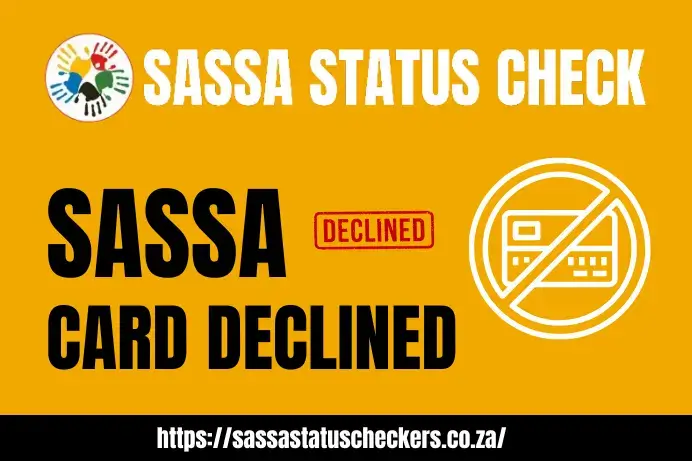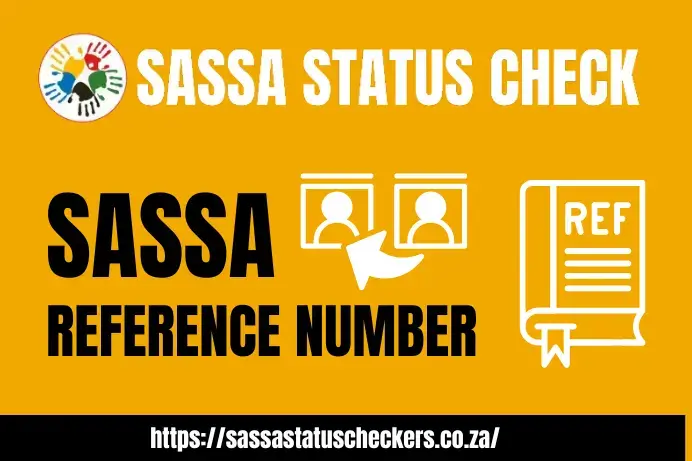SASSA Appeal: Your Guide to Reversing a Declined Application
Did SASSA reject your grant application? Don’t worry, you have the right to appeal! This guide will walk you through the SASSA appeal process, step by step. We’ll cover everything from understanding why your application was declined to gathering the necessary documents and submitting your appeal successfully. Let’s get started and get you the assistance you deserve.

Appealing a SASSA decision can seem daunting, but it’s a crucial step if you believe the decision was unfair. We’ll break down the process into manageable steps, providing clarity and support along the way. This guide is specifically designed to help you navigate the SASSA appeal system effectively.
Understanding Why Your SASSA Application Was Declined
The first step in a SASSA appeal is understanding why your initial application was unsuccessful. SASSA is legally obligated to provide you with a reason for the rejection. This reason is crucial for building a strong appeal.
Common reasons for rejection include:
- Exceeding the income threshold.
- Providing incorrect or incomplete information.
- Already receiving another form of social grant.
- Not meeting the eligibility criteria for the specific grant.
Note: Always request a written explanation from SASSA detailing the exact reason for the rejection. This document is vital for your appeal.
Reviewing the Rejection Letter
Carefully examine the rejection letter you received from SASSA. It should outline the specific reason(s) for the denial. Look for any discrepancies or misunderstandings that you can address in your appeal.
The letter might state that your income is too high. If this is the case, gather proof of your actual income, such as payslips or bank statements. If the rejection was due to incorrect information, collect the correct documentation to support your claim.
Who Can Appeal a SASSA Decision?
Any individual whose SASSA grant application has been declined has the right to appeal. This right is enshrined in the Social Assistance Act. You can appeal decisions related to various grants, including:
- Older Person’s Grant
- Disability Grant
- Child Support Grant
- Foster Child Grant
- Care Dependency Grant
- Social Relief of Distress (SRD) Grant (R350 grant)
If you are acting on behalf of someone else, such as a child or an elderly person, you must have the legal authority to do so. This might require a power of attorney or guardianship documentation.
The SASSA Appeal Process: A Step-by-Step Guide
The SASSA appeal process involves several key steps. Following these steps carefully will increase your chances of a successful appeal.
Step 1: Gather Supporting Documents
Collecting the right documents is crucial. These documents should directly address the reason(s) for the initial rejection. Here are some examples:
- Proof of Income: Payslips, bank statements, or a letter from your employer.
- Medical Records: If applying for a Disability Grant, provide updated medical assessments and reports.
- Identity Documents: A certified copy of your ID, birth certificate, or passport.
- Proof of Residence: Utility bills, a lease agreement, or a letter from a local authority.
- Affidavits: Sworn statements from individuals who can verify your circumstances.
Reminder: Ensure all copies of documents are certified by a Commissioner of Oaths. Uncertified copies may not be accepted.
Step 2: Writing Your Letter of Appeal
Your letter of appeal is your opportunity to explain why you believe SASSA’s decision was incorrect. Be clear, concise, and factual.
Here’s what to include in your appeal letter:
- Your full name and ID number.
- Your contact details (address, phone number, email).
- The date of the rejection letter.
- The specific grant you are appealing.
- A clear explanation of why you disagree with SASSA’s decision.
- A list of all supporting documents you are including.
- Your signature.
Example: “I am writing to appeal the rejection of my Disability Grant application. The rejection letter stated that my medical condition does not meet the criteria for the grant. However, I have attached updated medical reports from Dr. [Doctor’s Name] which clearly demonstrate the severity of my disability and its impact on my ability to work.”
Step 3: Submitting Your SASSA Appeal
You can submit your SASSA appeal in several ways:
- In Person: At your local SASSA office. Obtain a receipt as proof of submission.
- By Mail: Send your appeal via registered mail to the SASSA office. Keep the tracking number as proof of delivery.
- Online: If available, submit your appeal through the SASSA website.
Note: It’s always a good idea to submit your appeal in person or via registered mail to ensure you have proof of submission and delivery.
Step 4: Awaiting the Outcome of Your Appeal
After submitting your appeal, SASSA will review your case. The timeframe for a decision can vary, but it typically takes several weeks or months.
You can follow up on the status of your appeal by contacting SASSA directly. Keep your reference number handy when making inquiries. If you’ve lost it, here’s how to find your lost SASSA reference number.
If your appeal is successful, SASSA will notify you and begin processing your grant. If your appeal is unsuccessful, you have the option to appeal further to the Independent Tribunal for Social Assistance Appeals (ITSAA).
Appealing to the Independent Tribunal for Social Assistance Appeals (ITSAA)
If you are not satisfied with SASSA’s decision on your appeal, you can escalate your case to the ITSAA. This is an independent body that reviews SASSA’s decisions.
You must lodge your appeal with the ITSAA within 90 days of receiving SASSA’s decision. The process for appealing to the ITSAA is similar to the initial SASSA appeal. You will need to submit a written appeal along with all supporting documents.
The ITSAA will review your case and make a final decision. Their decision is binding on SASSA.
Common Reasons for SASSA Appeal Rejections and How to Address Them
Even with a well-prepared appeal, rejections can still occur. Understanding the common pitfalls can help you strengthen your case.
- Insufficient Evidence: Ensure you provide comprehensive and compelling evidence to support your claim.
- Failure to Meet Eligibility Criteria: Double-check that you meet all the requirements for the specific grant you are applying for.
- Income Exceeding Threshold: Provide accurate and up-to-date proof of your income. If your income has decreased since the initial application, highlight this in your appeal.
- Incorrect Information: Correct any errors in your application and provide supporting documentation.
Tips for a Successful SASSA Appeal
Here are some tips to maximize your chances of a successful SASSA appeal:
- Be Organized: Keep all your documents in order and easily accessible.
- Be Clear and Concise: Write your appeal letter in a clear and easy-to-understand manner.
- Be Truthful: Provide accurate information and avoid exaggerating your circumstances.
- Seek Assistance: If you are struggling with the appeal process, seek help from a paralegal, social worker, or advice center.
- Meet Deadlines: Ensure you submit your appeal within the specified timeframe.
The R350 Grant Appeal: Specific Considerations
Appealing the R350 grant rejection follows the same general principles as other SASSA grants. However, there are specific points to consider:
- Verification of Income: SASSA often uses databases to verify income. If you believe the information is incorrect, provide bank statements and affidavits to prove your actual financial situation.
- Unfair Rejection: If you believe your application was unfairly rejected, clearly state the reasons and provide any evidence to support your claim.
Reminder: The R350 grant is specifically designed for individuals facing severe financial hardship. Emphasize your vulnerability and need for assistance in your appeal.
Conclusion
Navigating the SASSA appeal process can be challenging, but with the right information and preparation, you can successfully challenge a declined application. Remember to gather all necessary documents, write a clear and compelling appeal letter, and submit your appeal within the specified timeframe. Don’t hesitate to seek assistance from relevant organizations if you need help. By understanding your rights and following these steps, you can increase your chances of receiving the social assistance you deserve. Good luck!
FAQs About SASSA Appeals
How long does a SASSA appeal take?
The processing time for a SASSA appeal can vary. It generally takes several weeks to a few months. Contacting SASSA directly for updates is recommended.
What if my SASSA appeal is rejected?
If your SASSA appeal is rejected by SASSA, you have the right to appeal to the Independent Tribunal for Social Assistance Appeals (ITSAA) within 90 days of receiving the rejection letter.
Where can I get help with my SASSA appeal?
You can get help from paralegals, social workers, community advice offices, and legal aid organizations. They can provide guidance and support throughout the SASSA appeal process.
What documents do I need for a SASSA appeal?
The documents needed for a SASSA appeal depend on the reason for the initial rejection. Common documents include proof of income, medical records, identity documents, and proof of residence.

